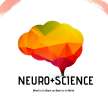How stress affects your brain?
Stress can kill brain cells and even reduce the size of the brain.

Are you sleeping restlessly, forgetting trivial things, feeling cranky or moody, and feeling overpowered and isolated?
Don't fear. We've all been there. You're probably just stressed out. Stress isn't always a bad thing. It can be handy for a burst of extra energy and focus, like when you're playing a competitive sport, or have to speak in public. But when it's continuous, the kind most of us face day in and day out, it begins to change our brain.
Chronic stress, like being overworked or having arguments at home, can affect brain size, its structure, and how it functions, right down to the level of your genes. Stress begins with something called the hypothalamus-pituitary adrenal axis, a series of interactions between endocrine glands in the brain and on the kidney, controls your body's reaction to stress. When your brain detects a stressful situation, your HPA axis is instantly activated and releases a hormone called cortisol, which primes your body for instant action. But high levels of cortisol over long periods wreak havoc on your brain.
For example, chronic stress increases the activity level and several neural connections in the amygdala, your brain's fear center. And as levels of cortisol rise, electric signals in your hippocampus, the part of the brain associated with learning, memories, and stress control, deteriorate. The hippocampus also inhibits the activity of the HPA axis, so when it weakens, so does your ability to control your stress. That's not all, though.
Cortisol can literally cause your brain to shrink in size. Too much of it results in the loss of synaptic connections between neurons and the shrinking of your prefrontal cortex, the part of your brain the regulates behaviors like concentration, decision-making, judgment, and social interaction. It also leads to fewer new brain cells being made in the hippocampus.
This means chronic stress might make it harder for you to learn and remember things, and also set the stage for more serious mental problems, like depression and eventually Alzheimer's disease. The effects of stress may filter right down to your brain's DNA.
An experiment showed that the amount of nurturing a mother rat provides its newborn baby plays a part in determining how that baby responds to stress later in life. The pups of nurturing moms turned out less sensitive to stress because their brains developed more cortisol receptors, which stick to cortisol and dampen the stress response. The pups of negligent moms had the opposite outcome, and so became more sensitive to stress throughout life.
These are regarded as epigenetic changes, meaning that they affect which genes are expressed without directly changing the genetic code. And these changes can be reversed if the moms are substituted.
But there's a startling result. The epigenetic changes caused by one single mother rat were passed down to numerous generations of rats after her. In other terms, the outcomes of these actions were inheritable. It's not all bad news, though.
There are numerous ways to undo what cortisol does to your stressed brain. The most potent weapons are exercise and meditation, which involve breathing deeply and being aware and focused on your surroundings. Both of these activities reduce your stress and enhance the size of the hippocampus, thereby improving your memory.
A little bit motivation:
Life is filled with challenges that will keep you restricted at many places. You’ll find your journey through life interspersed with ups and downs. What matters here, is your determination and enthusiasm. You’ll find yourself dragged by time many times, but don’t let your end down. Life has many interruptions to let you down just pass by as if they aren’t important. That’s the best way to face any calamity and trouble, no matter, of what kind.
So don't feel thwarted by the anxieties of daily life. Get in control of your strain before it takes control of you.
About the Creator
Better Brain
Exploring the mysteries of neuroscience.






Comments
There are no comments for this story
Be the first to respond and start the conversation.